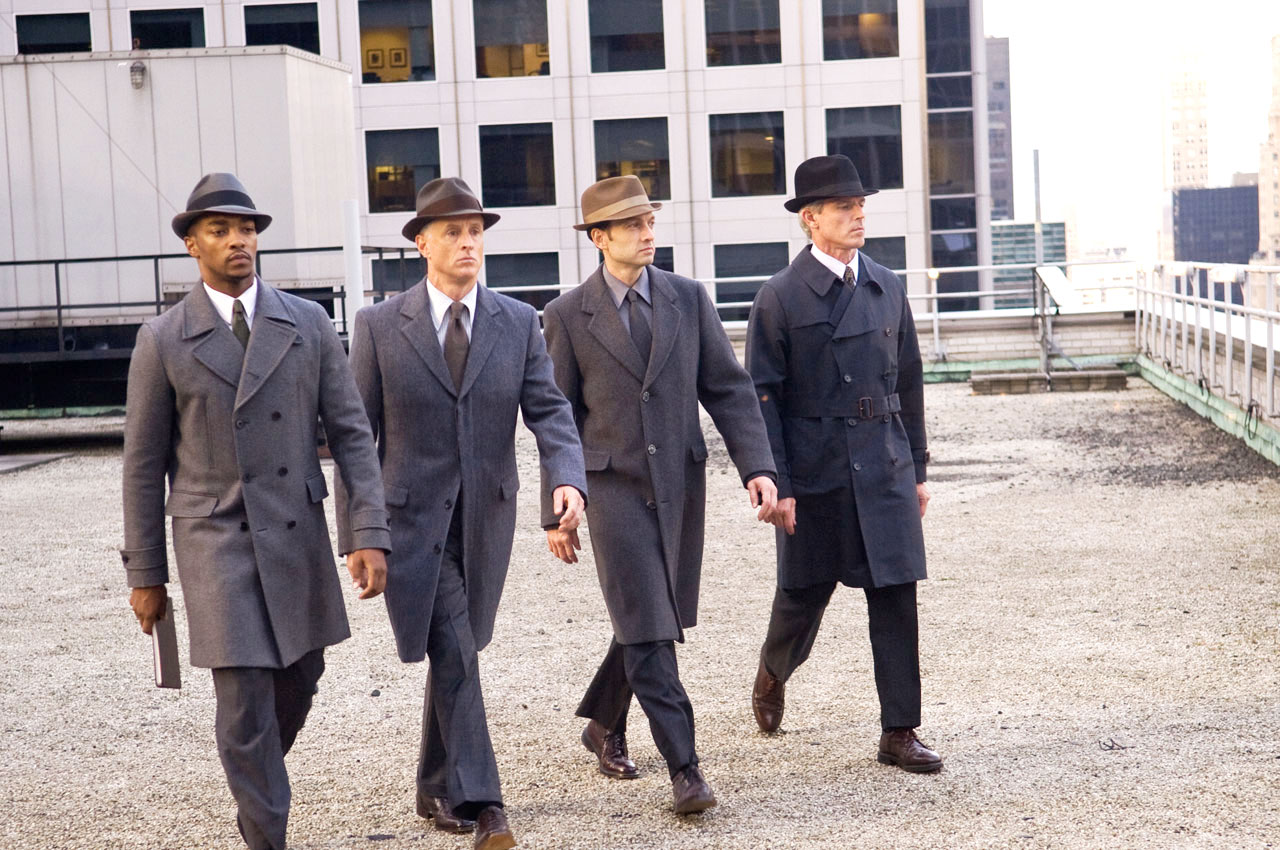 |
| Universal Pictures |
Something that is immediately strange about this movie is that it isn't a remake or sequel to anything. Sure, it's "based" on a Philip K. Dick story like every other science fiction movie ever made, but it's still something new coming out of Hollywood. So why was Hollywood willing to put money into a project that is generally unfamiliar to most people? Sure, Matt Damon is a draw for a lot of people and Emily Blunt is a good-looking, talented actress, but is that enough the world of today where most movies are rehashed material?
It seems to me that the premise of the story that a secret organization known as the "Bureau" is controlling life on earth is nothing new to anyone. Whether it's God, angels, lizard people, the illuminati aliens, whatever, many people believe in some force like fate that directs and governs life. Therefore, it's a safe bet that the audience will connect with this movie on some level. But is the massive appeal a good sign for someone who is looking for an intriguing, intelligent time at the movies?
In most cases, movies with universal, obvious messages are terrible or at best mediocre. And even if a movie is generally intelligent in the layout of the plot the revealing of the message at the end is usually something stupid like the ending to many indie movies that usually goes something like "we just have to learn to love in this crazy world." With a question of fate or free-will which 'The Adjustment Bureau' blatantly poses in the trailers and the film itself is the execution of the story or conclusion more important?
 |
| Universal Pictures |
For instance, the way Richardson (John Slattery) and Harry Mitchell (Anthony Mackie), both Bureau men, explain how they control life is just confusing enough for you to understand a few things which distracts you from it not really making sense when you think hard enough about it. Oh well. All that really matters (as they do their best to convince you of) is that if David doesn't forget about Elise then he won't have the same successful future and they threaten to erase him somehow. Something like a lobotomy, I think? Anyway, it's classic science fiction style to makeup a world with inter workings like the Bureau and not fully explain it so that's something that is more personal on whether it bothers you or not. Because the chase scenes when the Bureau is trying to follow David through the city by just opening random doors and appearing wherever they want to is pretty cool.
So the majority of the movie works a lot better than I expected it would and proves to be a fun sci-fi ride without too many obvious faults and hiccups. But now we come to the end so *SPOILER ALERT*, I guess. It wasn't bad, it just wasn't quite sure what it wanted to be. There's somebody called 'the Chairman' who runs the Bureau (you think, just maybe, that's another name for 'God'?) and David and Elise are determined to try and get him to 'rewrite' their paths in life so that they can be together. And as you can expect this happens after some intense chasing. We know that this is the moment when a point about fate vs free will is going to be made. Wait for it...huh?
 |
| Universal Pictures |
That's probably the reaction most people will have. Basically, this Harry Mitchell guy who has been following David throughout his entire life explains how the Bureau has been controlling life off and on throughout history. When things get bad, the Bureau takes control again and writes out everyone's destinies. The conclusion at the end is not that free will or fate exist as ultimatums, it's that people have to prove that they can use their free will well. Does that make sense? It doesn't seem to completely answer the question. But really, with a concept as complicated as this, there isn't ever a clear answer or proposal. Still, the film was a whole lot of build up to this point that we knew would inevitably come and it was just kind of meh. One possible explanation for this ending is that 'learning how to use free will' translates to be being aware of a higher power in control and making decisions in light of it? Whatever conclusion you come to it's most likely going to sound religious in nature.
No comments:
Post a Comment